Hamartia Antidote
ELITE MEMBER

- Joined
- Nov 17, 2013
- Messages
- 35,188
- Reaction score
- 30
- Country
- Location
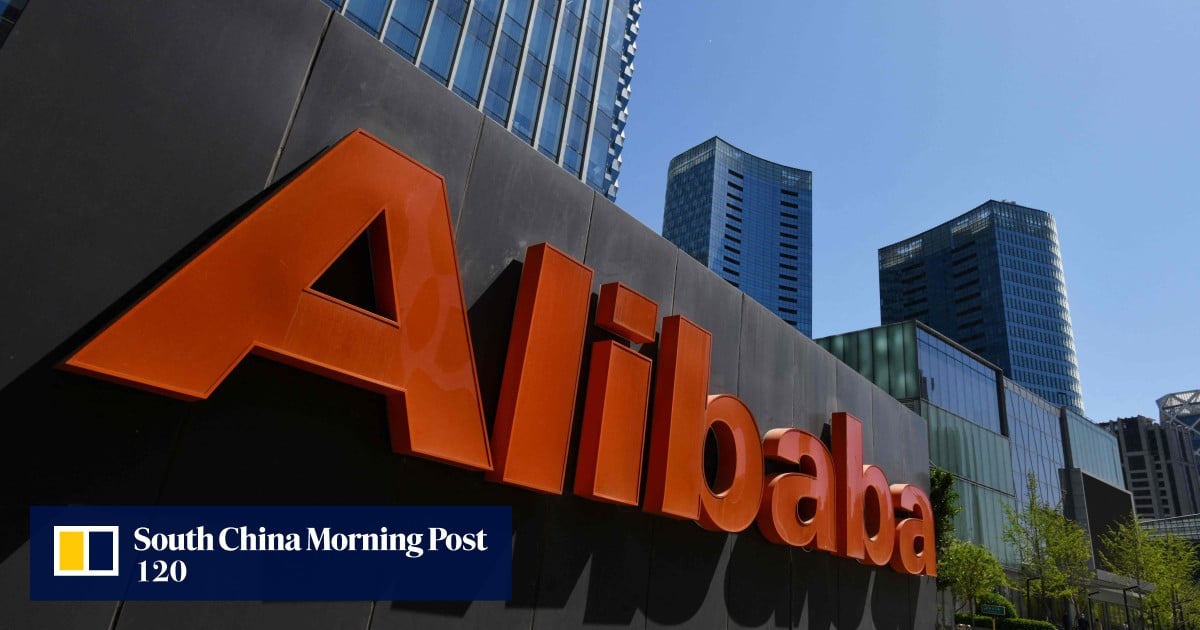
Alibaba cancels cloud unit spin-off over US export curbs on AI chips
The company has also put on hold its listing plan for supermarket chain Freshippo, a decision that it announced along with its latest quarterly earnings.
- Alibaba says it will not proceed with a full spin-off of its cloud computing unit due to uncertainties brought by US chip export curbs
- The company has also put on hold its listing plan for supermarket chain Freshippo, a decision that it announced along with its quarterly earnings
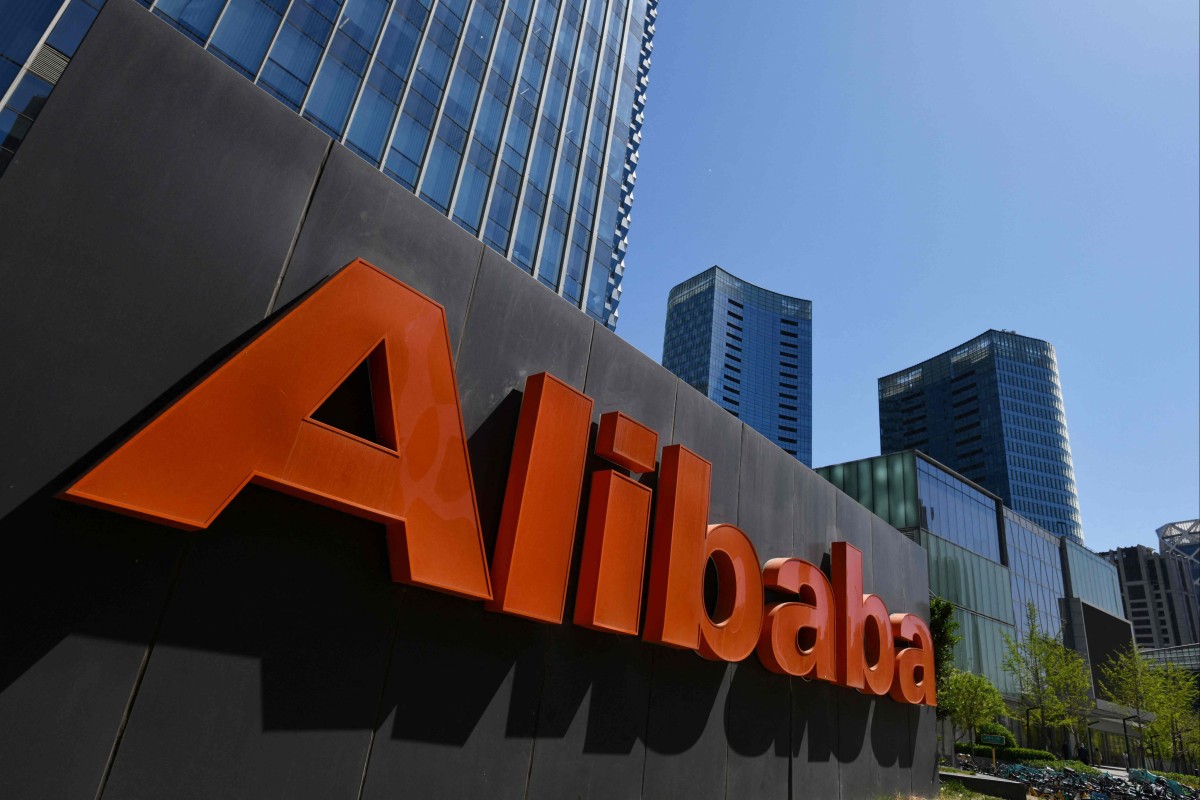
Alibaba Group Holding has announced it will not proceed with a full spin-off of its cloud computing unit, as it posted 9 per cent growth in revenues in the September quarter, in its first earnings report since new leadership took over the Chinese e-commerce giant in September.
The Hangzhou-based company said that a full spin-off of the Cloud Intelligence Group “may not achieve the intended effect of shareholder value enhancement” because of the uncertainties brought about by recently expanded US export restrictions on advanced computing chips.
Alibaba, which is undergoing a sweeping restructuring to break its business empire into six major units and several small businesses, also said it is putting on hold its listing plan for supermarket chain Freshippo, as the company evaluates “market conditions and other factors that would contribute to a successful transaction to enhance shareholder value”.
Meanwhile, the company said it will pay out its first-ever annual dividends, which will total around US$2.5 billion.
The Hangzhou-based company recorded revenue of 224.79 billion yuan (US$30.8 billion) in the quarter, in line with the consensus estimate of 224.1 billion yuan.
The growth was slower than the 14 per cent seen in the June quarter, when the firm saw improvements across all business segments amid a post-Covid-19 economic bump that has since fizzled out.
Net income reached 27.7 billion yuan in the three months to September 30, worse than the 30.7 billion yuan expected by analysts surveyed by Bloomberg.
Separately, Alibaba founder Jack Ma’s family trusts, JC Properties and JSP Investment, plan to sell a combined US$870 million worth of Alibaba shares on November 21, according to filings to the US Securities and Exchange Commission dated Wednesday.
Shares of Alibaba closed down 2.22 per cent at HK$81.35 on Thursday in Hong Kong, ahead of the earnings release.
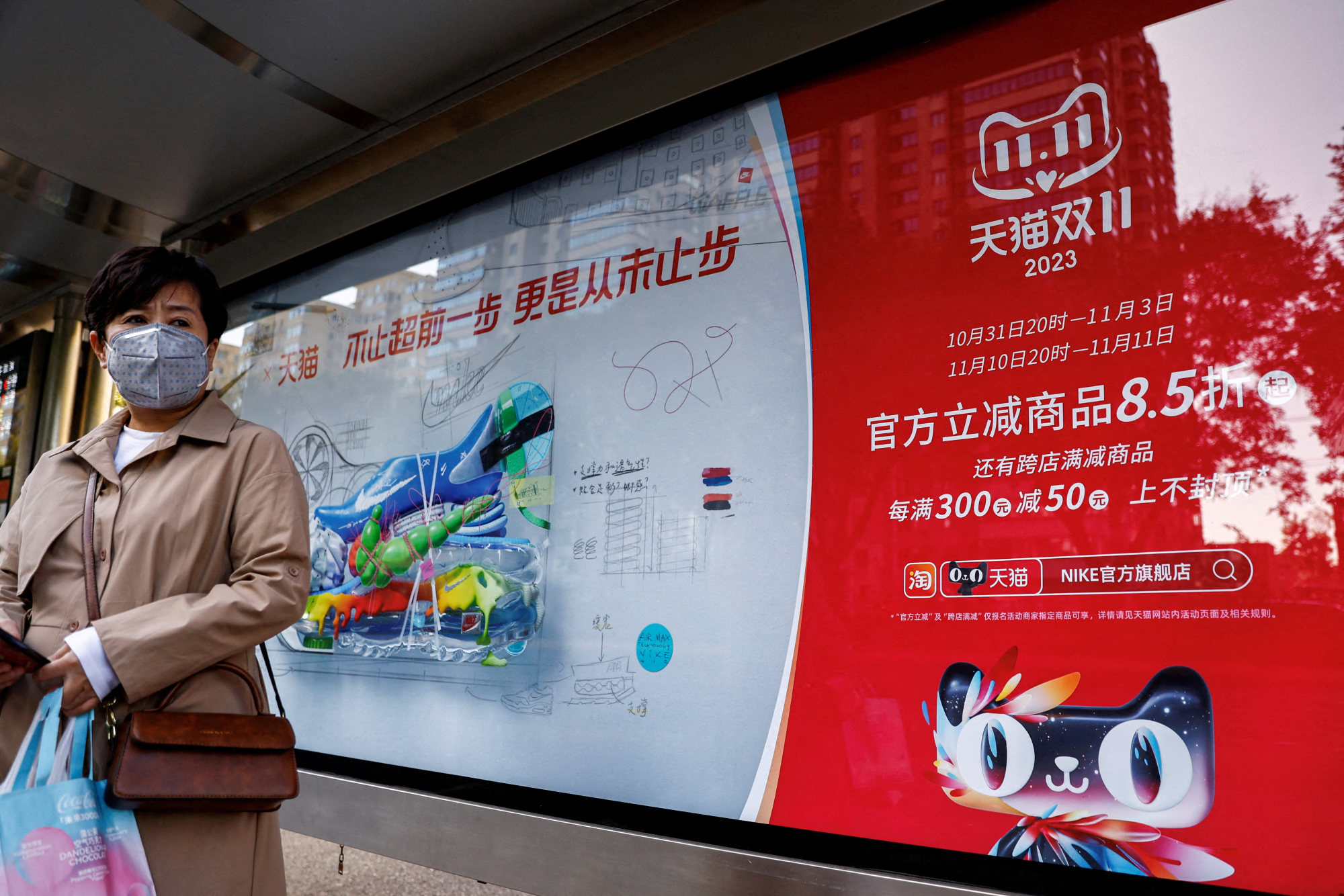
Alibaba’s advertisement promoting the Singles Day shopping festival at a bus stop in Beijing. Photo: Reuters
In a conference call with analysts on Thursday, Alibaba CEO Eddie Wu Yongming said the company’s cloud business will continue to operate independently under the management of its own CEO, while receiving strategic long-term investments from Alibaba.
He also unveiled a roadmap for the development of the whole group and key business units, including plans to turn its online shopping platform Taobao into a “universal consumer app” in the next three years, and to build the “most open cloud in the AI era”.
Revenue from the Cloud Intelligence Group, one of the company’s most important growth engines, rose 2 per cent to 27.6 billion yuan during the September quarter, compared with 4 per cent growth in the previous quarter.
Taobao and Tmall Group, the core e-commerce business, saw revenue rise 4 per cent year on year, while sales from international commerce jumped 53 per cent.
Revenue from the Cainiao logistics unit grew 25 per cent year on year, driven primarily by cross-border fulfilment solutions.
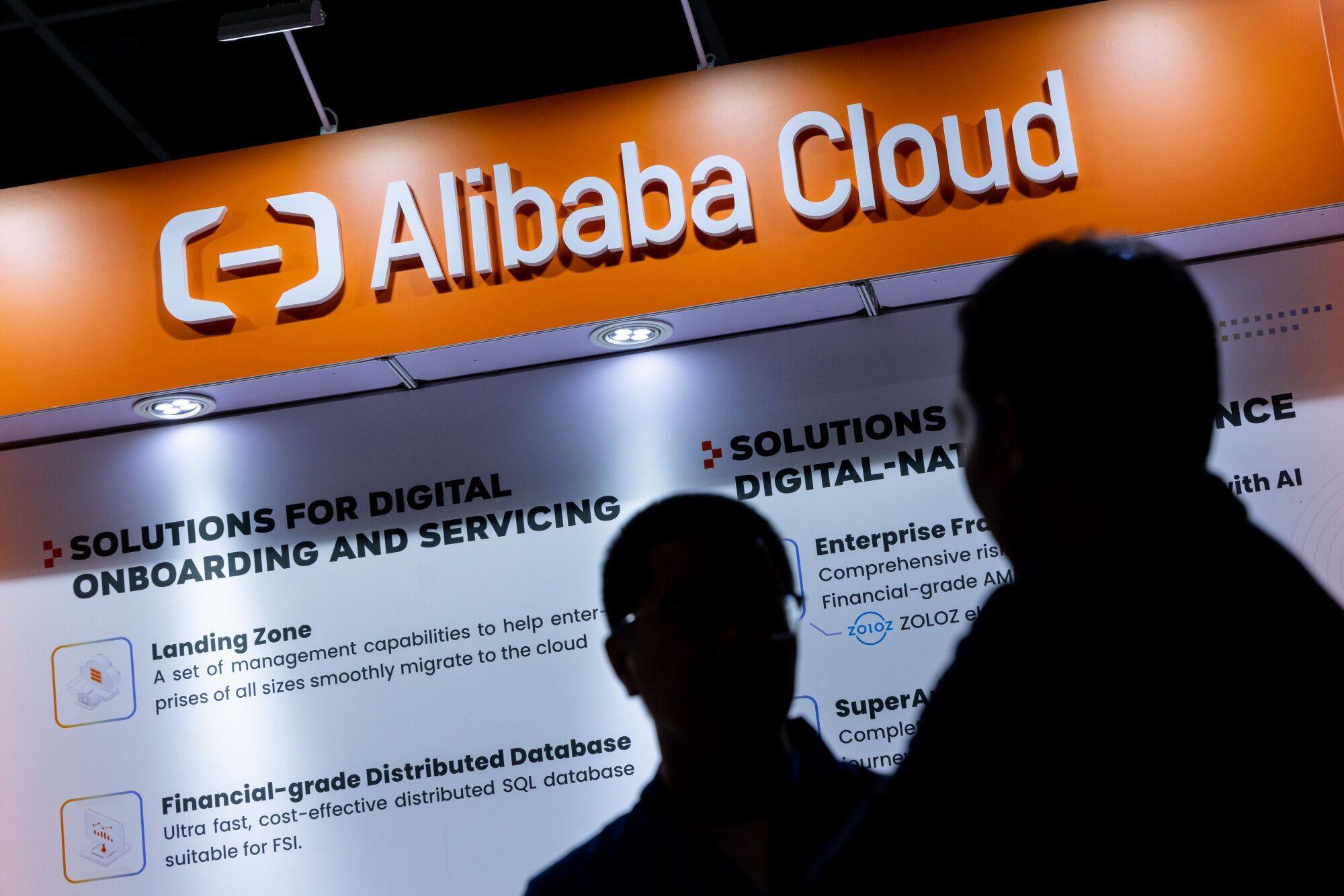
Alibaba has cancelled a full spin-off of Alibaba Cloud amid geopolitical tensions between the US and China. Photo: Bloomberg
The earnings marked the first quarterly report presented by Alibaba, which also owns the South China Morning Post, after Joe Tsai and Wu, two Alibaba co-founders, took the reins from former chairman and CEO Daniel Zhang Yong in September.
The leadership change was part of a sweeping restructuring plan announced by the e-commerce giant in March, which would break its sprawling business into six units including e-commerce, cloud computing and logistics, each potentially seeking their own fundraising avenues through initial public offerings.
Wu, the new group CEO, said in an internal letter in September that Alibaba was sharpening its focus on artificial intelligence (AI) and customers. The company has been doubling down on the application and development of its large language model called Tongyi Qianwen, first unveiled by the cloud unit in April amid the heated race between Chinese tech companies in generative AI applications.
The results also reflected how the e-commerce giant has been grappling with an uneven economic recovery at home amid an ailing property sector and weak domestic consumption.
The most recent retail sales data has shown improvement in the consumer market. In October, retail sales rose by 7.6 per cent year on year, beating market expectations, thanks to a spending spree during the extended “golden week” holiday.
In the third quarter, mainland China’s retail sales grew by 5.5 per cent in September, compared with a 4.6 per cent increase in August.
Last weekend, Alibaba and JD.com concluded this year’s Singles’ Day event, the world’s largest online shopping season, by reporting positive year-on-year growth in sales and order volume, but neither company revealed an exact sales tally.
Tencent:
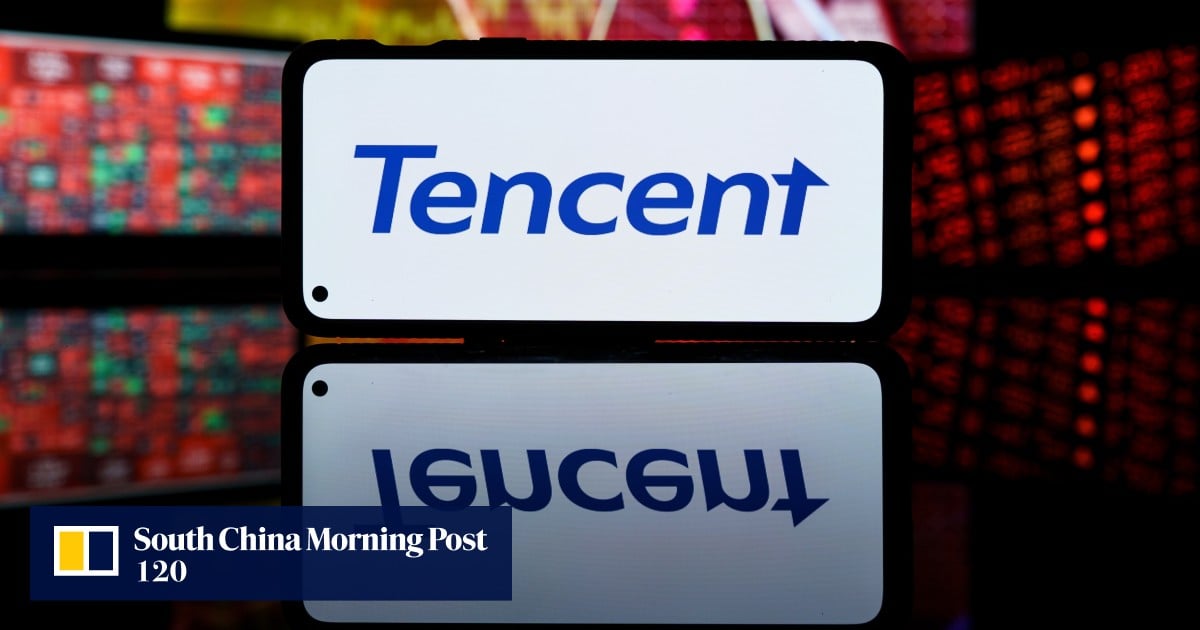
Tencent takes comfort from its huge stockpile of Nvidia chips for AI initiatives
The internet giant was the first to put in orders for Nvidia’s much-coveted H800 chip, which was designed for export to China to comply with earlier US tech restrictions.
